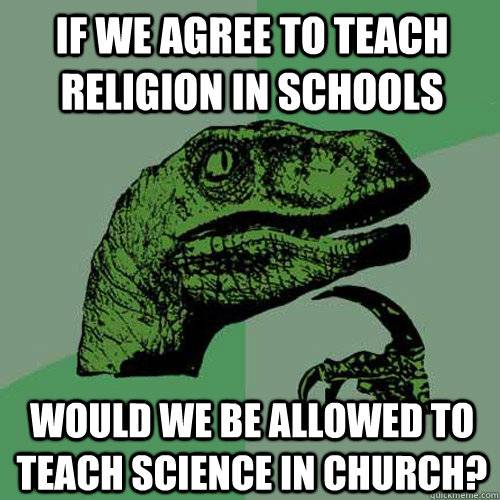1. The United States Supreme Court declined Monday to hear a Bronx churchs appeal of a city ban on holding worship services in public schools.
2. The city immediately set a February eviction date for about 60 churches that had been holding services in city schools pending the appeal.
3. The church, the Bronx Household of Faith, had appealed a federal panels June ruling that the citys ban on holding worship services in a school did not violate the churchs First Amendment right to free speech.
4. When worship services are performed in a place, a judge wrote in that decision, the nature of the site changes. The site is no longer simply a room in a school being used temporarily for some activity. The decision supported the citys view that letting churches conduct religious services in schools could be seen as the kind of endorsement of religion...
5. The Bronx Household of Faith, which meets at Public School 15 in the Bronx, has been assembling in classrooms since a judge ruled in 2002 that churches like other community groups have the First Amendment right to use school spaces. The decision by the United States Court of Appeals in June allowed the city to restrict the churches.
6. The Alliance Defense Fund: ...Churches and other religious groups should be able to meet in public buildings on the same terms as other community groups, the group said in a news release. They should not be excluded simply because of the religious nature of their speech.
Supreme Court Won't Hear Case on Churches' Use of Schools - NYTimes.com
7." ...the Supreme Court held in Good News Club v. Milford Central School (PDF) that it was unconstitutional for a public school district to exclude from its buildings a religious organization that planned to use the space to teach religious morals to school-aged children through the use of song, verse memorization, and lessons. The Court held that such exclusion amounted to viewpoint discrimination, because the district otherwise permitted use of the space for the teaching of morals and character, and was excluding the plaintiffs solely on the basis of their religious affiliation.
8. According to the Second Circuit, in cases like Good News Club, the policy being enforced categorically excluded expressions of religious content. Here, by contrast, there is no restraint on the free expression of any point of view. Expression of all points of view is permitted. The exclusion applies only to the conduct of a certain type of activity the conduct of worship services and not to the free expression of religious views associated with it....the distinction between the activity of worship and the expression of Christian viewpoints sounds incredibly thin (especially considering that the activities at issue in Good News Club included singing).
No More Religious Services in NYC Public Schools | Friendly Atheist
An addition to being unfair and discriminatory, do the series of decisions seem consistent?
Seems not so to me.
2. The city immediately set a February eviction date for about 60 churches that had been holding services in city schools pending the appeal.
3. The church, the Bronx Household of Faith, had appealed a federal panels June ruling that the citys ban on holding worship services in a school did not violate the churchs First Amendment right to free speech.
4. When worship services are performed in a place, a judge wrote in that decision, the nature of the site changes. The site is no longer simply a room in a school being used temporarily for some activity. The decision supported the citys view that letting churches conduct religious services in schools could be seen as the kind of endorsement of religion...
5. The Bronx Household of Faith, which meets at Public School 15 in the Bronx, has been assembling in classrooms since a judge ruled in 2002 that churches like other community groups have the First Amendment right to use school spaces. The decision by the United States Court of Appeals in June allowed the city to restrict the churches.
6. The Alliance Defense Fund: ...Churches and other religious groups should be able to meet in public buildings on the same terms as other community groups, the group said in a news release. They should not be excluded simply because of the religious nature of their speech.
Supreme Court Won't Hear Case on Churches' Use of Schools - NYTimes.com
7." ...the Supreme Court held in Good News Club v. Milford Central School (PDF) that it was unconstitutional for a public school district to exclude from its buildings a religious organization that planned to use the space to teach religious morals to school-aged children through the use of song, verse memorization, and lessons. The Court held that such exclusion amounted to viewpoint discrimination, because the district otherwise permitted use of the space for the teaching of morals and character, and was excluding the plaintiffs solely on the basis of their religious affiliation.
8. According to the Second Circuit, in cases like Good News Club, the policy being enforced categorically excluded expressions of religious content. Here, by contrast, there is no restraint on the free expression of any point of view. Expression of all points of view is permitted. The exclusion applies only to the conduct of a certain type of activity the conduct of worship services and not to the free expression of religious views associated with it....the distinction between the activity of worship and the expression of Christian viewpoints sounds incredibly thin (especially considering that the activities at issue in Good News Club included singing).
No More Religious Services in NYC Public Schools | Friendly Atheist
An addition to being unfair and discriminatory, do the series of decisions seem consistent?
Seems not so to me.



